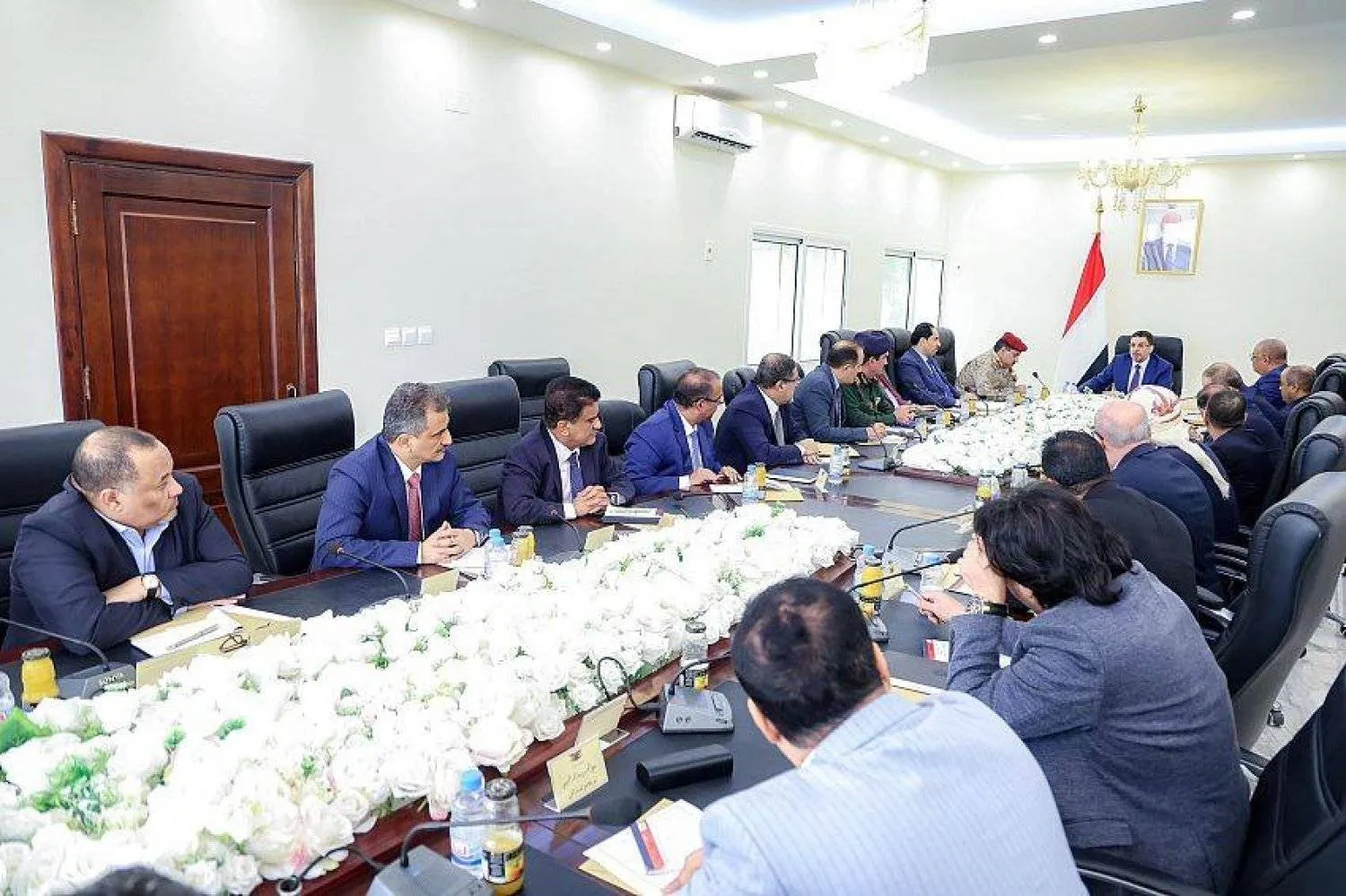Ahmed Awad bin Mubarak made fighting corruption a top priority during his first visit as Yemen’s new Prime Minister to the interim capital, Aden, on Tuesday. He vowed to regain control of state institutions seized by the Houthis.
The premier, who also serves as foreign minister, emphasized the need to fight against Houthi attempts to seize control of the state, stressing the importance of activating government bodies, improving services, and easing the hardships of Yemenis.
Bin Mubarak instructed the implementation of internal audits across ministries and government agencies to stop any wrongdoing and hold accountable those responsible, following legal procedures.
He underscored the need for the Central Control and Accountability Agency to fully carry out its duties within the law, focusing on key institutions affecting citizens’ lives and the country’s finances.
The prime minister handed a list of institutions needing oversight to the agency’s head and pledged to act on its recommendations.
At the cabinet’s first meeting, bin Mubarak prioritized addressing economic issues and improving living conditions, including regular salary payments and essential services, particularly in Aden.
The meeting highlighted that supporting Yemen’s government in reclaiming state institutions and protecting its waters is crucial for countering Houthi threats in the Red Sea and maintaining regional stability.
The government meeting reiterated its commitment to peace and welcomed both regional and international efforts to end the conflict in Yemen.
It emphasized the need for a comprehensive and lasting peace based on agreed-upon political frameworks, including relevant UN Security Council resolutions like Resolution 2216.
In another development, Yemen’s Finance Minister, Salem Salih bin Brik, held a meeting in Aden on Tuesday with ministry officials.
He highlighted the importance of preparing a plan to secure public resources, boost non-oil revenues in liberated areas, stabilize the national economy, and improve general conditions.
Yemen’s Bin Mubarak Stresses Anti-Corruption Drive a Week into Premiership

Ahmed Awad bin Mubarak presides over the first meeting of the Yemeni government after being appointed Prime Minister (Saba News Agency)

Yemen’s Bin Mubarak Stresses Anti-Corruption Drive a Week into Premiership

Ahmed Awad bin Mubarak presides over the first meeting of the Yemeni government after being appointed Prime Minister (Saba News Agency)
لم تشترك بعد
انشئ حساباً خاصاً بك لتحصل على أخبار مخصصة لك ولتتمتع بخاصية حفظ المقالات وتتلقى نشراتنا البريدية المتنوعة







